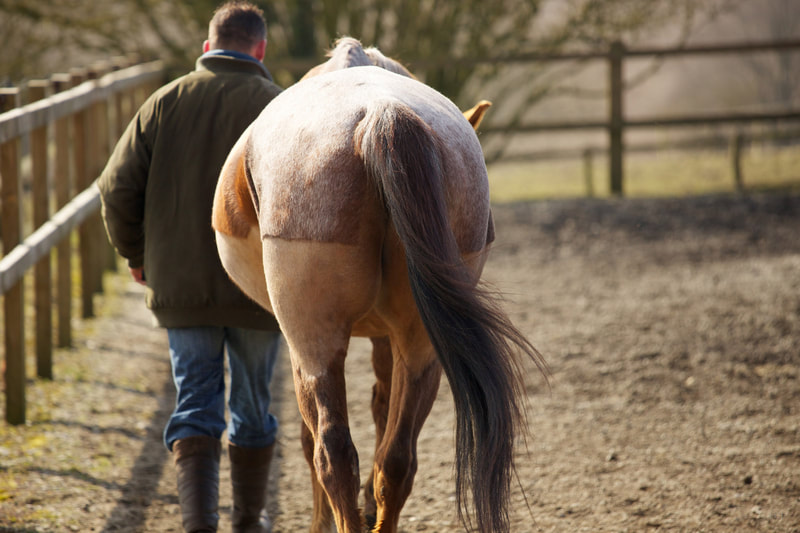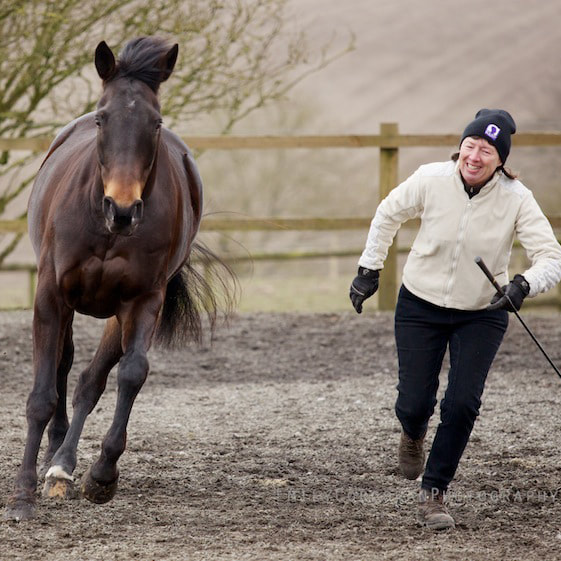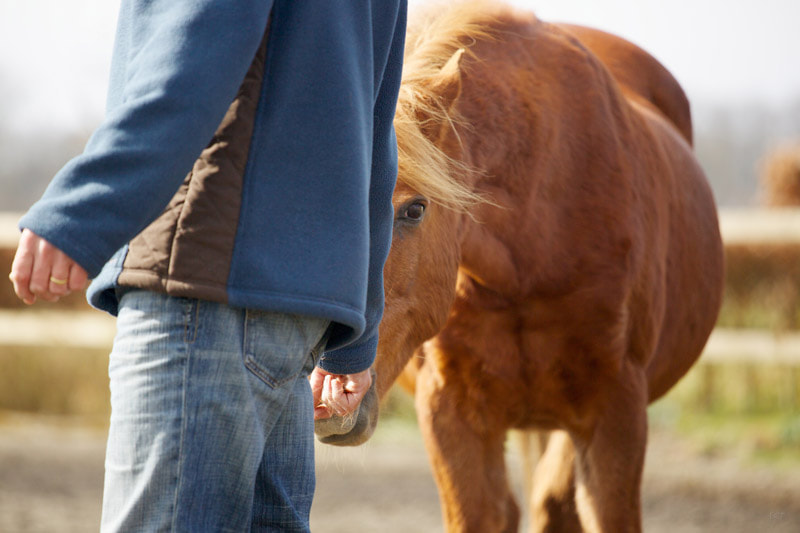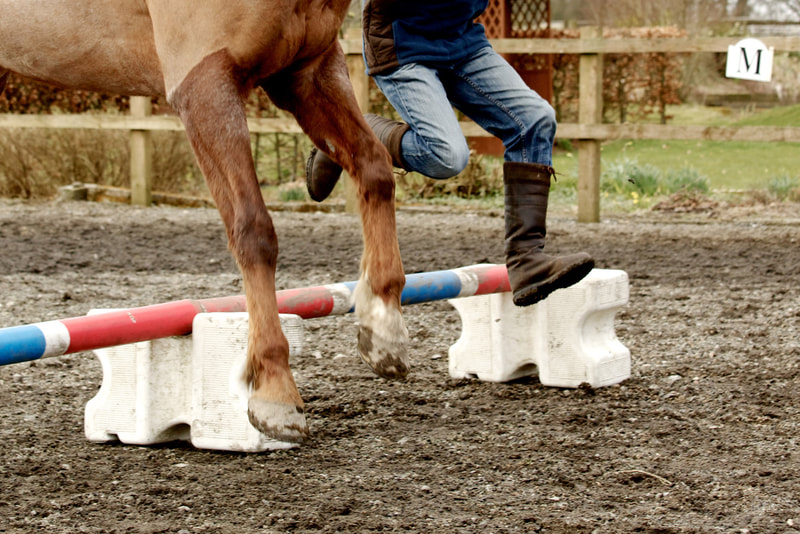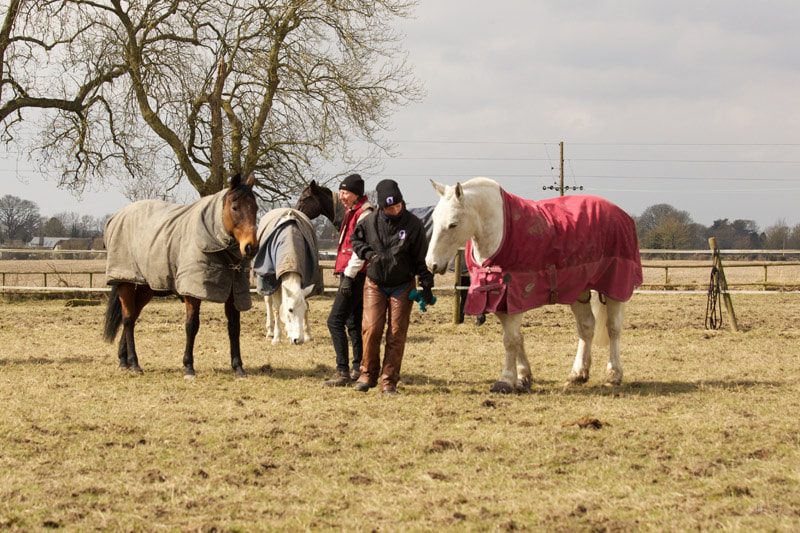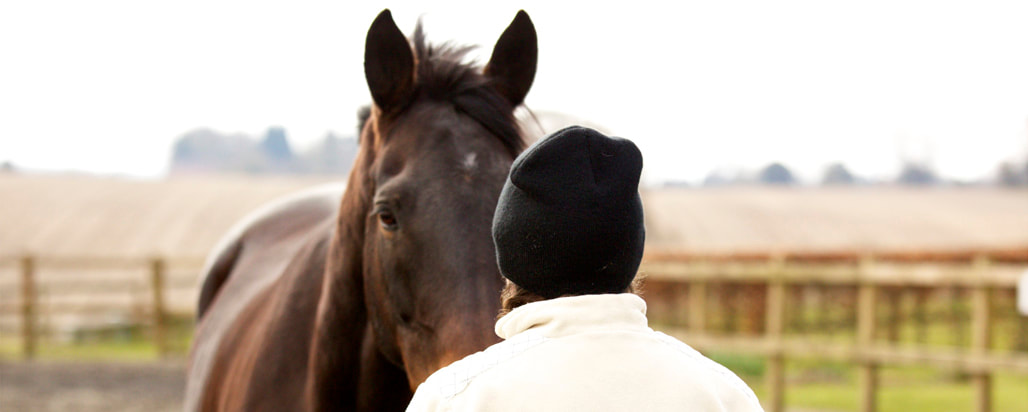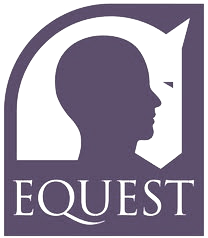Tackling the real stuff
Experiential team development is not unusual. But interventions which have a lasting impact on not only the performance of the team, but also the individuals within it, are. Experiential team development programmes which offer a fun day out are not hard to find – but ones where you can tackle the real stuff, the stuff that matters. Those are few and far between.
The power of our work rests in not just our human talents as facilitators, but in the honesty which comes from working with a herd of horses, and the immediacy of their feedback. The horses respond to the energy created by a team. They don’t feel the need to be polite or tactful or wait for the right time to show how they feel. The energy of the team is created by the emotions, the relationships and the way of communicating of everyone involved. So it doesn’t take very long to gain new understanding and insights into what might be going on.
For the horses to accept humans into their “herd” there needs to be trust, authenticity, respect, balance. Horses have no words, so we need to be able to embody these things, to live them, for a horse to believe us. This is where the power of our experiential team development lies.
Anyone who has worked in a team also knows that when difficult dynamics are present they are rarely verbalised. Or at least in a way which is constructive and builds rather than destroys trust.
This unexpressed dynamic is complex – emotions, fears, projections, vulnerabilities, assumptions, allegiances. The associated unhelpful behaviours aren’t always easy to fathom. This is because although some of the unspoken feelings are in conscious awareness, many of them aren’t.
But the horses tune into all this – helping us to become aware of what might have been outside our awareness, and encouraging us gently to name and explore that which we need to express.
We teach the team how to verbalise their experience non-judgementally and respectfully so that this rich new source of information helps them to reach new levels of understanding and cooperation. They leave with new skills to continue having constructive dialogue and avoiding the build-up of unhelpful dynamics in the future.
So instead of being something which people shy away from, what lies unexpressed amongst the team can become a force for successful change and outstanding performance.
The power of our work rests in not just our human talents as facilitators, but in the honesty which comes from working with a herd of horses, and the immediacy of their feedback. The horses respond to the energy created by a team. They don’t feel the need to be polite or tactful or wait for the right time to show how they feel. The energy of the team is created by the emotions, the relationships and the way of communicating of everyone involved. So it doesn’t take very long to gain new understanding and insights into what might be going on.
For the horses to accept humans into their “herd” there needs to be trust, authenticity, respect, balance. Horses have no words, so we need to be able to embody these things, to live them, for a horse to believe us. This is where the power of our experiential team development lies.
Anyone who has worked in a team also knows that when difficult dynamics are present they are rarely verbalised. Or at least in a way which is constructive and builds rather than destroys trust.
This unexpressed dynamic is complex – emotions, fears, projections, vulnerabilities, assumptions, allegiances. The associated unhelpful behaviours aren’t always easy to fathom. This is because although some of the unspoken feelings are in conscious awareness, many of them aren’t.
But the horses tune into all this – helping us to become aware of what might have been outside our awareness, and encouraging us gently to name and explore that which we need to express.
We teach the team how to verbalise their experience non-judgementally and respectfully so that this rich new source of information helps them to reach new levels of understanding and cooperation. They leave with new skills to continue having constructive dialogue and avoiding the build-up of unhelpful dynamics in the future.
So instead of being something which people shy away from, what lies unexpressed amongst the team can become a force for successful change and outstanding performance.

